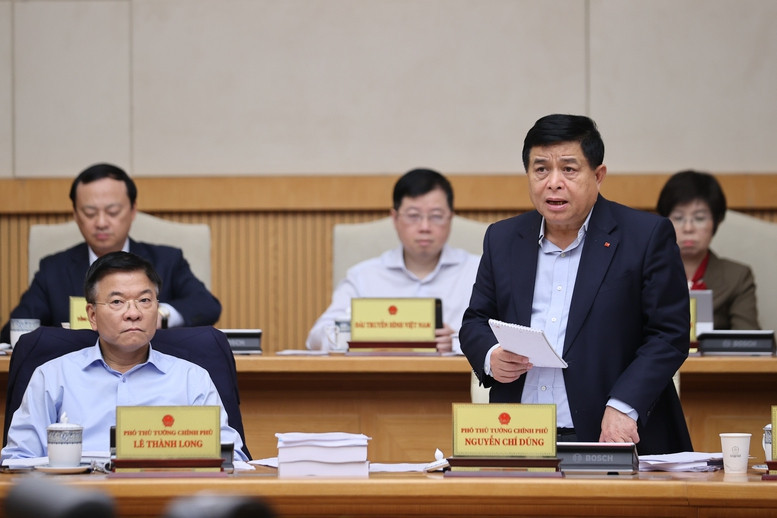Deputy Prime Minister Nguyen Chi Dung has called on the Ministry of Science and Technology (MOST) to prioritize high-level human resource development, emphasizing the need to establish breakthrough policies and mechanisms to attract top talent in science and technology, especially overseas Vietnamese intellectuals.

On April 14, the Government Office issued a formal conclusion from the Deputy Prime Minister following a working session with MOST.
During the session, Nguyen Chi Dung expressed broad agreement with the Ministry’s proposed orientations and solutions across several strategic fields, including artificial intelligence, data centers, digital infrastructure, e-Government, the digital economy, and digital technology industries.
These include areas such as robotics, UAVs, electric vehicles, vaccines, innovation, national S&T infrastructure (measuring and testing centers), intellectual property, quality standards, and nuclear energy.
However, he also pointed out several shortcomings that must be urgently addressed to meet Vietnam’s development goals. These include the significant gap in scientific and technological capacity compared to advanced countries, and the fragmented legal framework that still presents many obstacles, limiting innovation and digital transformation.
The Deputy Prime Minister urged MOST to streamline its organizational structure and staff following recent mergers to ensure efficient and effective operations.
Regarding legal reforms, the Ministry is tasked with reviewing, amending, and introducing new laws that are consistent and coherent. The goal is to eliminate outdated mindsets, such as “if you can’t manage it, ban it,” and instead foster a flexible legal environment conducive to innovation.
He emphasized the need to finalize draft laws for submission to the National Assembly in 2025. This includes institutional frameworks for national databases, data exchange platforms, regulatory sandboxes for emerging technologies, and reforms in intellectual property rights - decentralizing authority and streamlining administrative procedures for faster and more efficient processing.
Visa-free entry criteria for experts and scientists
Deputy Prime Minister Dung instructed MOST to formulate special policies to attract and retain domestic and international science and technology talent, with a particular focus on overseas Vietnamese experts.
Specifically, the Ministry is to develop and implement clear criteria for recognizing experts and scientists eligible for visa-free entry. Additional measures include special funding for outstanding research groups and formal mechanisms to recognize and honor contributions by scientists.
He also emphasized the importance of promoting innovation within businesses and strengthening collaboration between the state, scientists, and private enterprises to enhance the role of the private sector in science and technology.
The Deputy Prime Minister noted that Vietnam must strive to meet the targets set in Resolution 57 by 2030: R&D expenditure reaching 2% of GDP and R&D personnel numbering 12 per 10,000 residents.
He called for the development of a robust startup ecosystem and for swift policy completion to establish funds such as the National Technology Innovation Fund, venture capital funds, and innovation support funds.
The Vinh